Most studies focusing on the impact of climate change on human life focus on how extreme weather events affect economic and social health on a large scale. However, climate change may also have a strong impact on basic human activities. A study published in one earth recently shows that the rise of ambient temperature has a negative impact on the sleep of residents around the world.
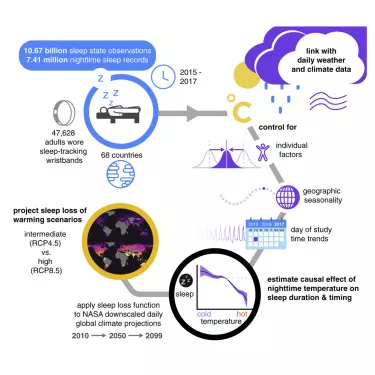
Research shows that by 2099, suboptimal temperature may lead to a reduction of 50-58 hours of sleep per person per year. Moreover, the effect of temperature on sleep is much greater among residents, the elderly and women in low-income countries.
It goes without saying that sleep is very important for human health and social production. "Our results suggest that sleep time may be reduced by rising temperatures." Kelton minor of the University of Copenhagen in Denmark, the first author of the paper, said, "in order to promote relevant departments to make wise climate policy decisions in the future, we need to better consider the possible impact of future climate change under the current greenhouse gas emission selection scenario."
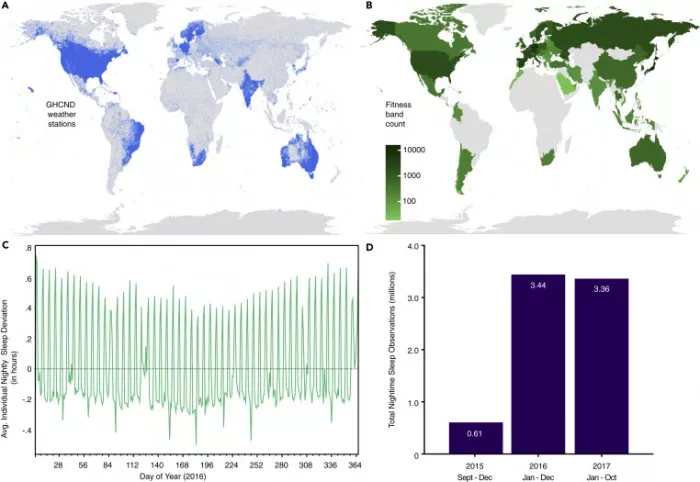
It has long been known that hot weather will increase the rate of death and hospitalization and worsen people's performance, but the biological and behavioral mechanisms behind these effects have not been fully revealed. Recently, self-reported data of U.S. residents show that subjective sleep quality will decline during hot weather, but it is still unclear how temperature fluctuations affect objective sleep data of residents in different climate regions of the world.
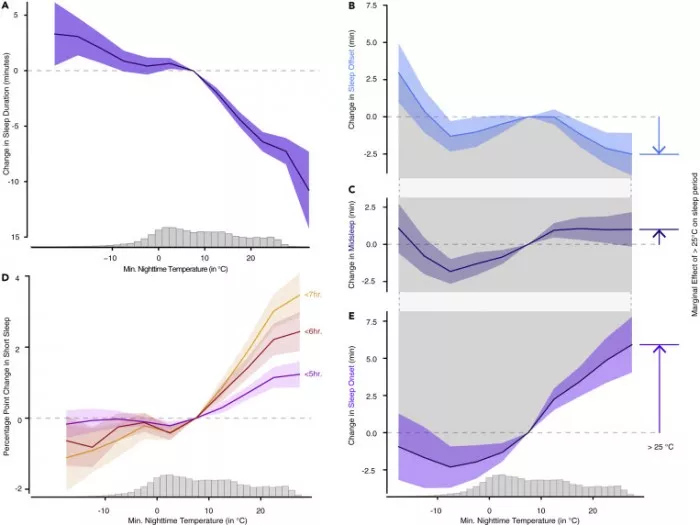
"In this study, we provide the first global scale evidence that above average temperatures erode human sleep." "This erosion occurs mainly through hot weather that delays falling asleep and waking up early," minor said
This time, the researchers used anonymous global sleep data collected from sleep tracking wristbands. The data include 7 million nocturnal sleep records from more than 47000 adults in 68 countries across all continents except Antarctica. The wrist strap measurement tool used in this study has previously been shown to be consistent with independent measurements of wakefulness and sleep.
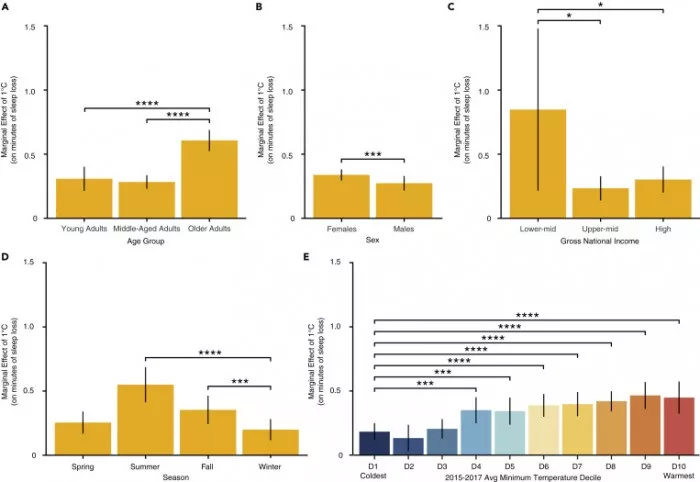
Research shows that on very warm nights (more than 30 degrees Celsius), sleep time is reduced by an average of slightly more than 14 minutes. The probability of sleeping less than 7 hours also increases with the increase of temperature.
"The human body maintains a stable core temperature. They do something unusual every night that most of us don't realize - by expanding blood vessels and increasing the blood flow to our hands and feet, they radiate heat from the core of the body to the surrounding environment." Minor said that in order for the human body to emit excess heat, the ambient temperature needs to be lower than our own temperature.
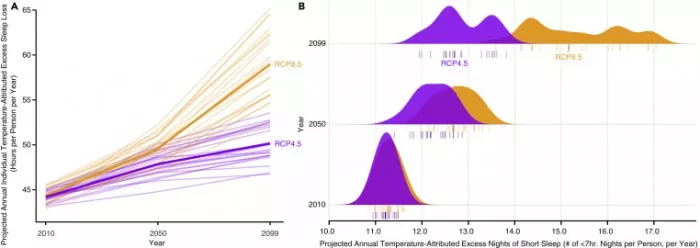
Early controlled studies conducted by the sleep laboratory also found that when the room temperature was too hot or too cold, both humans and animals slept less. But the study is limited by people's behavior in the real world: they actively adjust the temperature of their sleep environment to make it more comfortable.
In the current study, researchers found that under normal living habits, people seem to be more able to adapt to the cold outside environment than to the heat. Minor pointed out that "in different seasons, population structure and climate background, the increase of external temperature has been eroding sleep, and with the increase of temperature, sleep loss gradually increases."
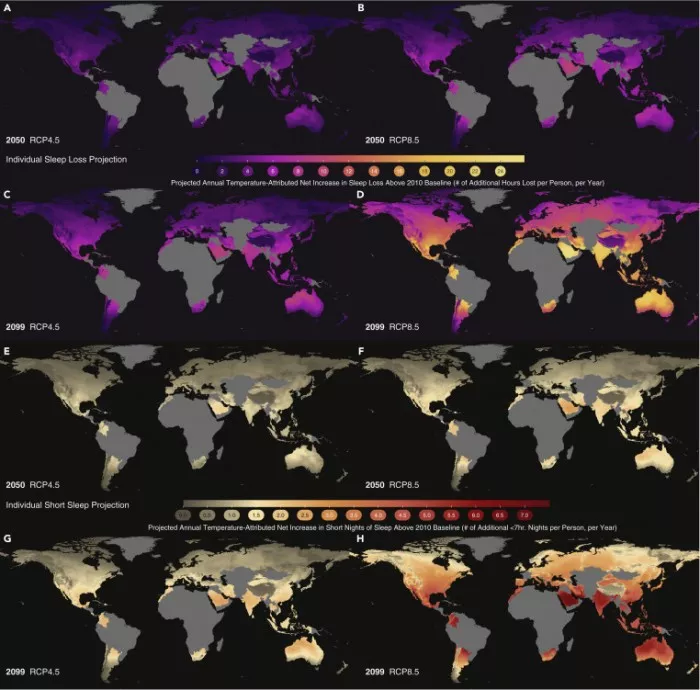
In addition, an important observation is that householders in developing countries seem to be more vulnerable to these changes. However, researchers cannot determine the reason. For example, the popularity of air conditioning in developed countries may be one of the reasons, but they have no data on subjects' use of air conditioning, so they cannot confirm it. However, the researchers point out that they have found convincing evidence that the impact of global warming on sleep loss is unequal, so special consideration should be given to more vulnerable people, especially those living in the hottest and historically poorest areas of the world.
In future work, the team hopes to work with global climate scientists, sleep researchers and technology providers to expand the scope of global sleep and behavior analysis to a wider range of people and environments. In addition, they hope to study the impact of rising ambient temperatures on the sleep of imprisoned people in hot climate areas, who may have particularly limited access to air conditioning.